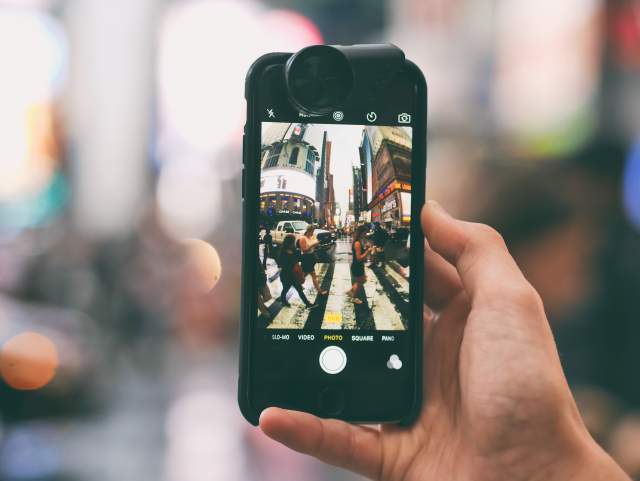Anthony van der Meer, a film student, was having lunch in Amsterdam when his iPhone was stolen. By the time he realised that the phone was no longer in his possession and called the police, it was already too late.
 |
| photo credit aaron-burden |
Video transcript:
On ‘find my iPhone’ I was able to see the last few meters the thief had walked, before the phone went offline. Losing such an expensive phone wasn’t even my biggest concern. But the idea of a stranger having access to all my photos videos, contacts, e-mails and messages…
The way in which the thief worked made me wonder. What kind of person would steal a phone? And where do these phones end up?
To find out, I started an investigation. ‘Find my iPhone’ turned out to be of no use. The thief could simply take the SIM card out of the phone and reset the phone so that it was untraceable. Besides, the internet provides different services to unlock blocked iPhones.
To find out what happens to stolen phones, I decided to create a decoy phone. A phone that doesn’t just give the location, but with which you can also take photos, video's and make audio recordings remotely.
I bought an Android telephone and started working on it. The memory of an Android phone is divided into two parts. A system and a user part. When resetting the phone only the user part is deleted, while the system part stays intact. Only when the phone is updated or if a different operating
system is put in place, the system part will be reset.
I contacted the developer of the anti-theft app Cerberus and asked them to change the name of the app, so that it isn't easily recognizable. By installing Cerberus on the system part of the phone, and by making updates and flashing impossible, the app was impossible to delete. If the phone has an Internet connection, I can control it remotely.
Now the easy part, the phone only had to be stolen.
***
However, the part didn't go as planned, because after four unsuccessful days of trying to get his phone stolen in Rotterdam, they decided to try Amsterdam (where approximately 17 phones are reported stolen every day) for a day hoping that someone would take the bait.
But even after a whole day in Amsterdam, having been at all the tourist attractions, the phone was still in the bag. Just then, as they gave up hope, turned off the camera and decided to go back home, the phone finally got stolen.
Over the next two weeks, the film student secretly followed the thief as he wandered around Amsterdam with his lifted phone, documenting his each and every move.
He took photos, recorded videos and backed up the phone's memory to his computer, all from the team's workspace. He read the thief's messages, saw where he travelled, and listened in on his personal conversations. After some time following his suspect around, van der Meer began to feel sympathy, even pity for the man who wronged him. When he finally faced the thief, he pulled back into anonymity, letting the phone go.
Find my Phone is the final outcome. Equally thrilling and disturbing, this short docufilm is an intimate exploration of the mind and life of a thief through the lens of technology.
[sources: Business Insider, The daily dot, Techcrunch]


